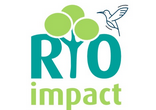
Agriculture : at the cross-road of environmental and social sustainability
Agriculture sits at the cross-road of environmental and social sustainability. As it is the foundation of any society, and the initial brick in the satisfaction of the pyramid of needs, the marketization of agriculture is perhaps the clearest example of the threat that current economic organization poses to our future.
Making money is central in a society where what we have defines who we are. This culture affects everybody, and it is at the origin of the unsustainability of modern societies [1]. When it comes to key sectors, such as agriculture, the pursuit of economic success and the satisfaction of shareholders’ interests become prominent motivations. Other aspects lose importance : the quality of the products, maintaining traditional crops and methods, caring for and respecting the rhythm of other species, land management, protecting local habitats and workers. Not by chance the environmental impact of agriculture grew with its turnover and industrialization.
The Intergovernmental Panel on Climate Change reports that 23% of global emissions are from agriculture. In 2020, the European Court of Auditors evaluated that more than 80% of the habitats in European Union are in “poor” or “bad” condition, and the share of habitats in poor condition increased to 72% [2]. At the same time agriculture attracts nearly a third of the budget of the European Union (about 344 billion from 2021 to 2027). In the past, nearly 80% of this money went to big, industrial companies thanks to the influence exerted by their lobbies.

In their defense, these powerful groups – in 2018 the two biggest European agricultural lobbies spent 2.5 million euro to support their activities – often claim that the culprit is satisfying the needs of a growing population. In other words, they attribute unsustainability to people’s consumption and lack of interest in future generations. This is a misbelief ! Studies indicate that global food systems can satisfy our energy needs by 2050 and beyond, with positive effects on health [3] ; the growth of world population is expected to stop in the next few decades ; and, most of all, people care about future generations.
The culprit of unsustainability is not greed. The marketization of growing shares of our lives limits our ability to cooperate to achieve common goals. Additionally, powerful economic groups limit the ability of public institutions to pursue common interests.
The idea that well-functioning markets are the way to better lives is a myth, especially in agriculture. It is emblematic that the pursuit of happier, healthier, and more sustainable lives can start from agriculture, the activity that allowed the development of modern societies and now undermines their survival.
Environmental sustainability and quality of life require re-orienting social and economic activities in favor of people. Here are three suggestions : first, public support to agriculture should target social enterprises exclusively, because they are not profit maximizers. Second, we should reduce food losses and waste from the cradle to the grave. Finally, lobbying on key sectors, such as agriculture, should be forbidden. At stake is our future.
Francesco Sarracino
[1]https://ideas.repec.org/p/zbw/glodps/825.html
[2]https://www.eca.europa.eu/Lists/ECADocuments/SR20_13/SR_Biodiversity_on_farmland_IT.pdf
[3]https://www.thelancet.com/journals/lancet/article/PIIS0140-6736(18)31788-4/fulltext
Article tiré du dossier du mois « De la terre à la terre »
















